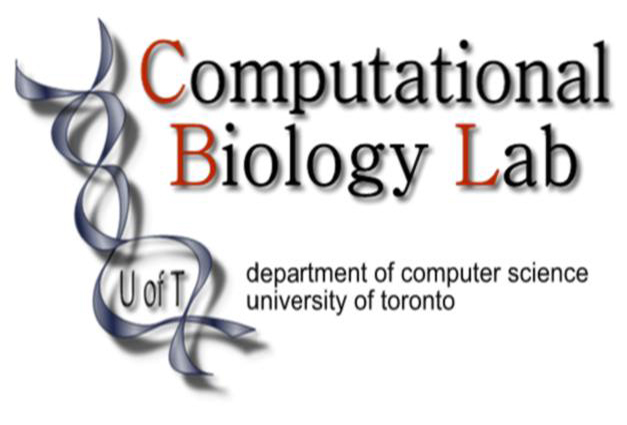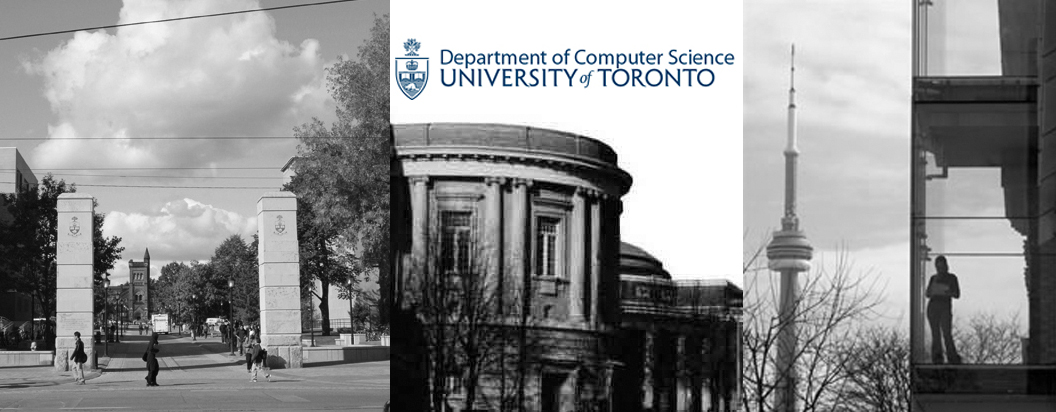

Quick menu:
Courses in the Department of Computer Science
This graduate course will cover some exciting algorithms that have been developed to analyze genomic and functional data, including Genome comparison and assembly, gene prediction, localization of regulatory elements in the genome, and analysis and comparison of biological networks. While the emphasis of the class will be on discrete algorithms, we occasionally will talk about probabilistic models (such as HMMs), and the interplay between discrete and probabilistic models. The course is intended for computer science graduate students, and all of the required biology will be explained in the class. Students in biological and related sciences with a strong computational background are encouraged to participate.
CSC 2418H Computational Structural Biology
In the post-genomic era, several key problems in molecular biology center on the determination and exploitation of three-dimensional protein structure and function. This graduate course will cover the computational aspects of Structural Biology - the modeling and computer simulation of structure, function, and dynamics of biological molecules. We will study algorithms to facilitate protein structure determination by X-Ray Crystallography and Nuclear Magnetic Resonance (NMR) Spectroscopy, Protein-Protein Interactions, Computer-Assisted Pharmaceutical Design, and Structure/Function Analysis. In addition to covering historic and contemporary algorithms, we will discuss open problems plaguing the field. The course is intended for computer science graduate students, and all the required biology will be explained in the class. Students in biological and related sciences with a strong computational background are strongly encouraged to participate.
CSC2431H Topics in Computational Molecular Biology
The topics discussed in this course vary from year to year and generally depend on the instructor.
Graduate Bioinformatics Courses Outside the Dept of Computer Science
BCH1441H Bioinformatics
BME1412H Engineering Models in Biology
BME1413H Biological Communication Processes
JTB2010H Proteomics and Functional Genomics
JTB2020H Applied Bioinformatics
MBP1010H Quantitative Biology - Statistical Methods
MBP1011H Foundations of Bioinformatics
MBP1024Y Advanced Medical Imaging
MIE1511 Data Integration in Life Sciences
Computational Biology students usually take many of the graduate classes offered by the Department of Computer Science.
DCS courses:
|
Department of Computer Science, 10 King's College Road, Toronto, ON, Canada M5S 3G4 | contact us | |